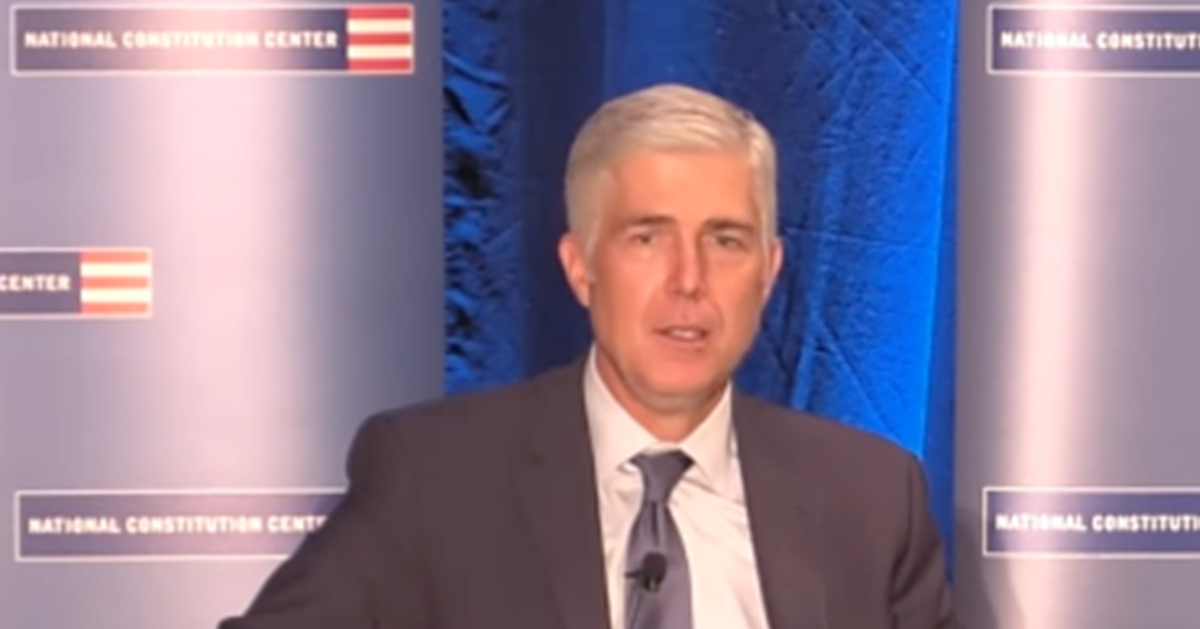Mike Johnson Halts Vote on SAVE Act, Seeks GOP Consensus
House Speaker Mike Johnson (R-LA) took the House by surprise on Wednesday when he halted a scheduled vote on a significant spending bill that included the Safeguard American Voter Eligibility (SAVE) Act.
Johnson's decision to delay came amid rising tensions within the Republican Party, with several GOP members voicing concerns regarding what some view as a controversial voter registration provision, as the Post Millennial reports.
The spending bill in question was designed to fund the federal government through March 2025. However, its inclusion of the SAVE Act, a provision requiring proof of U.S. citizenship for voter registration in federal elections, divided lawmakers.
Johnson, who had initially planned to press forward with the vote, changed course after it became clear that his party was not united on the matter.
GOP Leaders Withdraw Bill Amid Tensions
Donald Trump strongly supported the SAVE Act, emphasizing its importance for securing elections. Nevertheless, Johnson's withdrawal of the vote came just hours after GOP leaders decided to pull the package from the floor, signaling a significant lack of support.
The decision not only reflects internal division within the Republican Party but also the growing challenge of passing a bill that has faced criticism from Democrats and the White House.
“We’re going to work through the weekend on that. No vote today because we’re in the consensus-building business here in Congress with small majorities,” Johnson told reporters, explaining his decision to step back from the vote. Despite his desire to move forward, Johnson acknowledged that building party unity was essential to the bill's passage.
SAVE Act Faces Continued Pushback
The SAVE Act had already passed the House earlier this year, but it stalled in the Senate, where Democratic leadership expressed strong opposition. Senate Majority Leader Chuck Schumer (D-NY) and House Minority Leader Hakeem Jeffries (D-NY) labeled the bill as "extremism." Their comments echoed similar sentiments from the White House, which has consistently criticized the measure as unnecessary and divisive.
Johnson, however, defended the legislation, stating, “I want any member of Congress, in either party, to explain to the American people why we should not ensure that only U.S. citizens are voting in U.S. elections.” He reiterated his belief in the need for such measures, especially in light of recent polls showing strong public support for proof of citizenship requirements.
Public Opinion On Voter Registration Reform
A recent poll conducted by McLaughlin and Associates revealed that 86% of voters agreed with the idea that proof of U.S. citizenship should be required for voter registration. This strong public backing has been a key talking point for Johnson and other supporters of the SAVE Act. However, the polling data has not been enough to sway Democrats or even some Republicans who worry that the legislation could suppress voter turnout or unfairly target certain groups.
The bill, which Trump has championed, is part of a broader effort by Republicans to strengthen election security following the controversies of the 2020 presidential election. However, opposition from within Johnson's own party has created significant hurdles. Many GOP lawmakers are concerned that adding the SAVE Act to the funding bill could derail the broader effort to secure government financing and avoid a potential shutdown.
Looking Ahead: Building Consensus
Johnson's decision to step back from the vote does not mean the end of the SAVE Act's journey through Congress. Rather, it signals a period of reflection and negotiation as GOP leaders work to build the necessary support for the bill. “The whip is going to do the hard work and build consensus,” Johnson said, emphasizing the need for unity within the party before any further action is taken.
This weekend, Johnson and other Republican leaders will be working behind the scenes to gather enough votes to move forward with the spending bill, potentially with or without the SAVE Act. The outcome of these discussions will likely determine whether the legislation moves ahead in its current form or if further adjustments are made to address the concerns of dissenting lawmakers.
Potential Impact On Government Funding
The broader spending bill tied to the SAVE Act is crucial for keeping the government funded through March 2025. Should the bill continue to face opposition, it risks not only stalling the SAVE Act but also delaying government funding, potentially triggering a shutdown. Johnson's leadership in navigating this complex political terrain will be put to the test as he balances the priorities of election security and keeping the government functioning.
His strategy to delay the vote highlights the delicate balancing act of maintaining party cohesion while advancing controversial legislation. It remains to be seen whether Johnson can bridge the gap between conservative members of his party who back the SAVE Act and more moderate Republicans who fear its broader implications.
Conclusion
In summary, House Speaker Mike Johnson's decision to pull the vote on the SAVE Act signals ongoing challenges in building consensus within the Republican Party.
While the bill has strong support from Donald Trump and significant public backing, it faces resistance from both Democrats and Republicans concerned about its impact on voter registration and government funding.
As GOP leaders work through the weekend to find a path forward, the fate of the SAVE Act remains uncertain, with Johnson aiming to unite his party around a solution that balances election security and the need for continued government funding.



